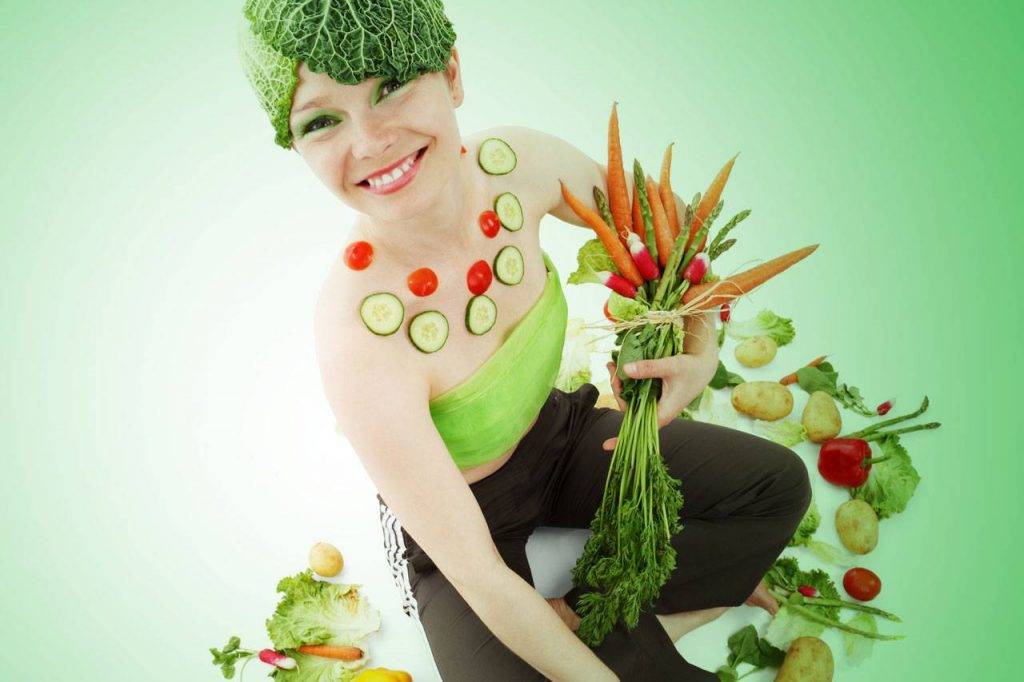Remember that dreaded saying from your parents, “Eat your vegetables”? Well it’s true.
Vegetables are renowned for their health benefits. They are high in essential vitamins, minerals and fiber while being low in calories.
Some veggies stand out from the crowd as they provide unique health benefits and even reduce your risk profile for many eye conditions.
1. Spinach
Because of its remarkably high nutrient content, this leafy green ranks first among the healthiest vegetables. Spinach in your diet will improve the health of your eyes both now and into the future.
For only 7 calories, one cup of spinach delivers up to 56% of your daily vitamin A needs as well as your complete daily vitamin K requirements.
Spinach includes lutein and zeaxanthin, which contain a significant number of strong antioxidants that can help prevent macular degeneration.
2. Carrots
Carrots are high in vitamin A, with just one cup delivering 428% of the daily required intake.
Carrots contain beta-carotene, an antioxidant that gives them their bright orange color and may help prevent cancer.
Carrots also include antioxidants lutein and beta carotene, which promote eye health and protect against age-related degenerative eye diseases. Beta carotene is converted by your body into vitamin A, a substance that helps in night vision.
3. Broccoli
Broccoli is a cruciferous vegetable that includes sulforaphane, a cancer-fighting chemical. By defending against oxidative stress, broccoli may also assist in lessening the risk of chronic disease.
Broccoli is high in lutein and zeaxanthin, which are two of the most important nutrients for your eyes because they help to prevent retinal oxidation and age-related degeneration.
4. Garlic
Garlic has been used as a medicinal plant for thousands of years, with roots dating back to ancient China and Egypt.
Garlic has been shown in studies to help reduce blood triglyceride levels. Garlic may also lower blood sugar levels and have anti-cancer properties, according to a study published in the American Journal of Clinical Nutrition (1981).
According to a study published in the Iranian Journal of Basic Medical Sciences (2013), garlic can lower intraocular pressure (2013).
Furthermore, Journal of Ocular Pharmacology and Therapeutics (2008) garlic is mentioned for its antimicrobial property that makes it effective against microorganisms that cause eye-threatening conditions.
5. Brussels sprouts
Brussels sprouts, like broccoli, belong to the cruciferous vegetable family and contain the same health-promoting plant chemicals.
Brussels sprouts contain kaempferol, an antioxidant that may help prevent chronic diseases and protect cells from oxidative damage. They may also aid in the body’s detoxification process.
Brussels sprouts are high in lutein and zeaxanthin, which are essential for the macular health of your eyes. These two nutrients will help protect your eyes from outside injury, as well as prevent dry eyes, which can cause irritation or even damage to your corneas.
6. Kale
Kale, like other leafy greens, is known for its health-promoting properties, such as its high nutrient density and antioxidant content.
Raw kale includes a lot of B vitamins, potassium, calcium and copper in a cup. This veggie can by itself meet your entire daily vitamin A, C, and K requirements.
Kale also contains lutein and zeaxanthin, which are related to vitamin A and beta-carotene and may help protect eye tissues from UV damage and lessen the risk of aging-associated changes in the eyes.
SEE RELATED: 6 Tips for Healthy Eyes after 50
Contact an eye doctor near you who can advise you on how your diet can keep your eyes healthy.
7. Green peas
Green peas are high in fiber, which is beneficial to digestive health. They also include saponins, which are plant chemicals that may have anti-cancer properties.
The carotenoids lutein and zeaxanthin are also found in peas. These nutrients aid in the prevention of chronic eye diseases such cataracts and age-related macular degeneration.
Lutein and zeaxanthin are antioxidants that can also protect the eyes from damaging blue light from digital screens.
8. Swiss chard
In the spectrum of greens, Swiss chard lies between spinach and kale—not as tender as spinach, not as tough as kale.
Swiss chard is abundant in vitamins and minerals and has a low calorie count!
There are two types of Swiss chard: rainbow chard and white chard. Both are high in the antioxidants lutein and zeaxanthin.
9. Red peppers
One medium pepper contains vitamin B, beta carotene and more than double your daily vitamin C requirement.
Vitamin C is healthy for your eyes’ blood vessels, and research suggests it may reduce your chance of cataracts.
10. Asparagus
This nutritious spring vegetable is high in vitamins and minerals, making it a great compliment to any diet.
Asparagus contains a wealth of vitamins A, C, and E are abundant in asparagus and this also contains the antioxidants lutein and zeaxanthin, which can help prevent eye illnesses such as cataracts and age-related macular degeneration.
11. Red cabbage
Fiber, vitamin C, and anthocyanins are abundant in red cabbage, also known as purple cabbage. According to some studies, this veggie can lower blood cholesterol levels, reduce inflammation, and lessen the risk of heart and liver disease.
Purple cabbage also contains vitamin A, which helps keep the eyes healthy and improve vision. It also lowers your chances of developing macular degeneration and cataracts. Even in old age, the nutrients in vegetables can help maintain eye health.
12. Collard greens
Collard greens are a vegetable high in nutrients. Collard greens, along with other leafy greens, broccoli, and soybeans, are among the best plant sources of calcium.
Collard greens are also abundant in antioxidants.
A study published in the American Journal of Ophthalmology (2012) found that consuming more than one serving of collard greens per week was linked to a 57% lower risk of glaucoma, an eye disease that can lead to blindness.
LEARN MORE: Guide to Eye Health
Schedule an appointment with an eye doctor near you to discuss the best ways to keep your eyes healthy.
It’s clear that including veggies in your diet is critical for good eye health and general well being.
The trick is to make them tasty so that the whole family can enjoy their health benefits.









